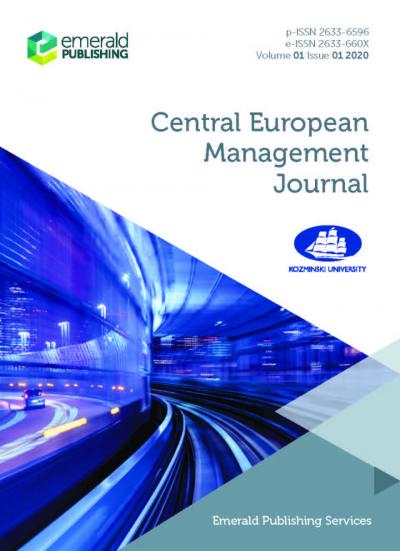Effect of consumer self-discrepancy on materialism and impulse buying: the role of subjective well-being
Effect of consumer self-discrepancy on materialism and impulse buying: the role of subjective well-being
Author(s): Linas Pupelis, Beata ŠEINAUSKIENĖSubject(s): Business Economy / Management, Socio-Economic Research
Published by: Akademia Leona Koźmińskiego
Keywords: Self-discrepancy; Materialism; Impulse buying; Subjective well-being; Life satisfaction;
Summary/Abstract: Purpose – This study aims to explore how and why self-discrepancy affects materialism and impulsive buying and the extent to which subjective well-being mediates the relationship between self-discrepancy, materialism and impulsive buying.Design/methodology/approach – The authors have tested the hypothesis with a convenience sample (N 5 434) from Lithuania. Descriptive analysis, principal components analysis (PCA), serial mediation hypothesis tested with model 81 from regression-based path analysis modeling tool PROCESS Macro for IBM® SPSS® Statistics 24.7 statistical software.Findings – The serial and parallel mediation analysis results indicated that greater self- discrepancy was related to poorer life satisfaction, which was related to greater materialism centrality, which promoted greater impulsive buying. Also, the greater the self-discrepancy, caused more occurrence of negative affect, which relates to increased materialism happiness, which triggers impulsive buying. Self-discrepancy was negatively associated with the frequency of positive affect, which was positively related to materialism, which stimulatesimpulsive buying.Research limitations/implications – The study was dominated by younger respondents. The survey was conducted during the lockdown of the Covid-19 virus pandemic.Originality/value – There is little empirical evidence to support the reasoning behind why self-discrepancy predicts a higher degree of materialism, which increases impulsive buying. This study suggests the mechanism of how subjective well-being affects relationships of self-discrepancy on materialism and impulsive buying.
Journal: Central European Management Journal
- Issue Year: 31/2023
- Issue No: 2
- Page Range: 222-240
- Page Count: 19
- Language: English

